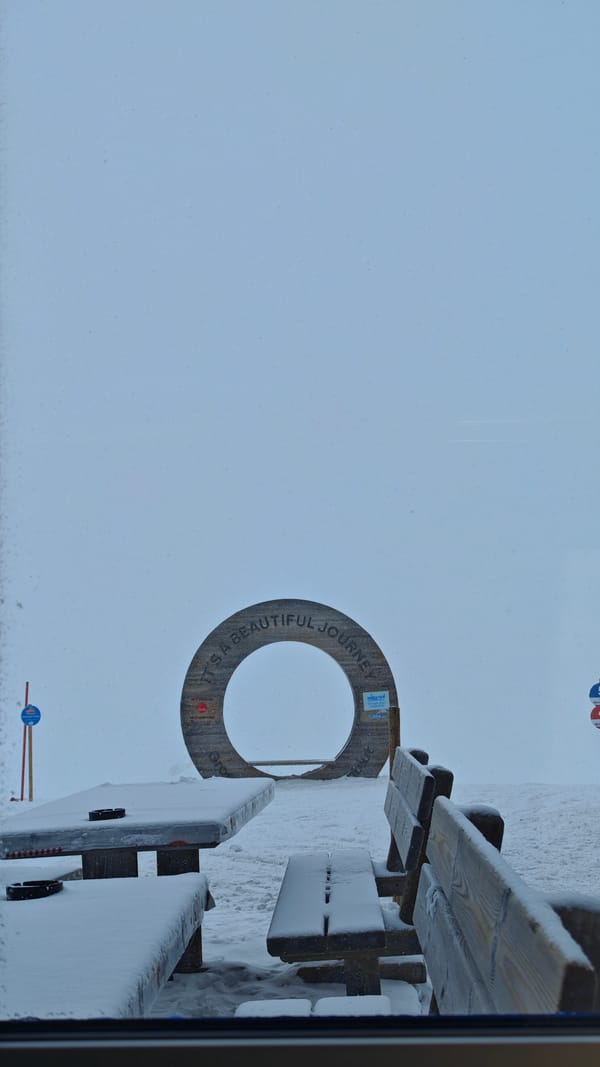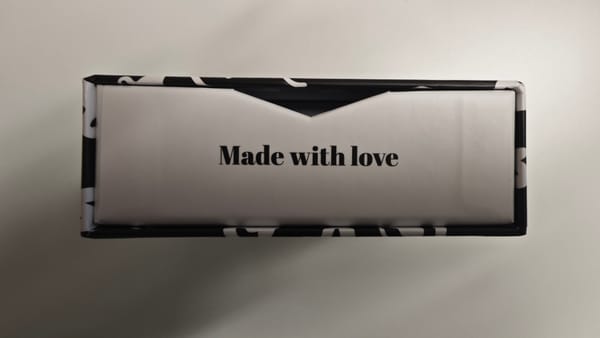Week 34/2025
This song is an instrumental.
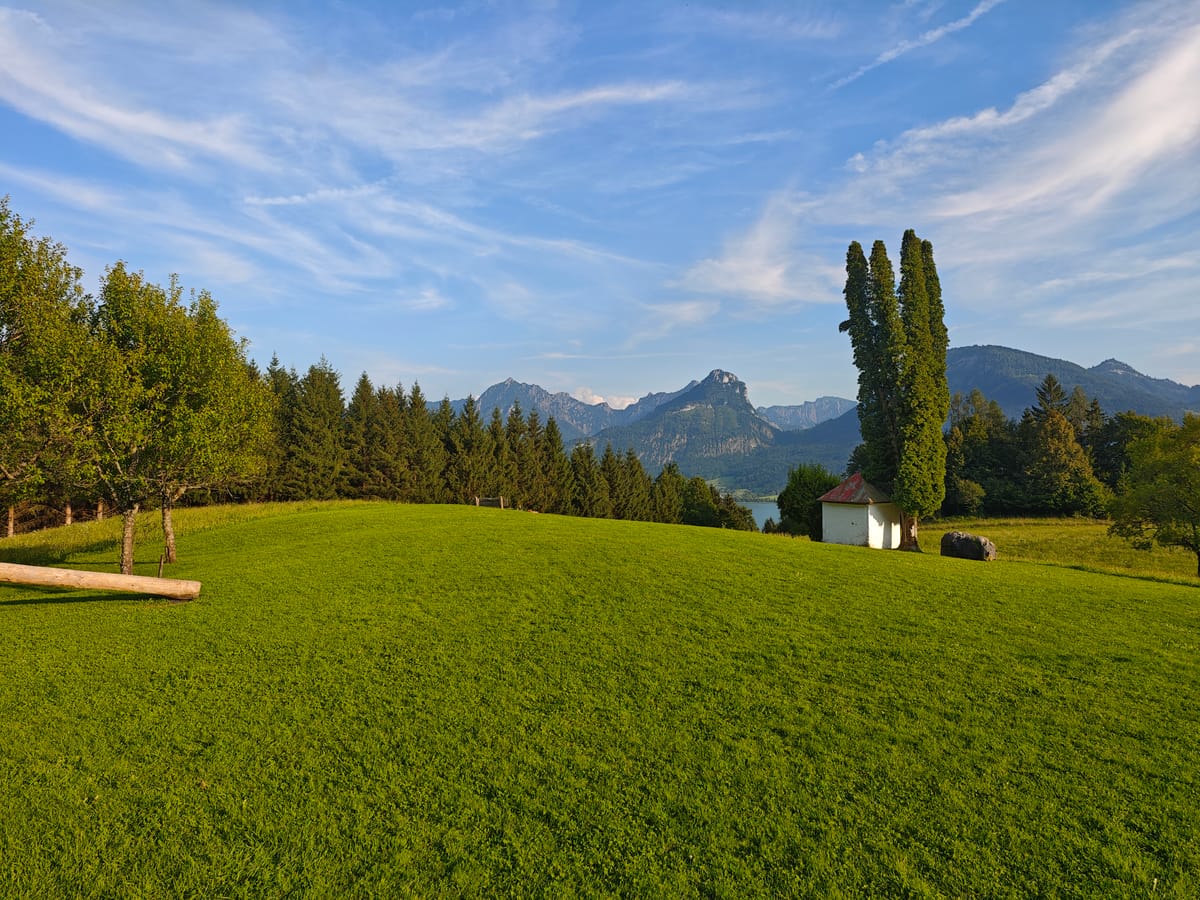
From Substack to Ghost
I moved this weekly newsletter from Substack to Ghost recently. Here are my reasons. If you are interested in some more (technical) pros and cons of this move I try to live with now, you might want to read this or that.
Because of the legal holiday on August 15th in Austria, this email is delivered on Thursday, August 14th, already.
The fact that you - hopefully - have received this message on Thursday at 6.00 am shows that - hopefully - everything worked fine and that you have - hopefully - stayed with me. If you are therefore reading this via email and are OK with hearing from me every Friday morning (or exceptionally on Thursday, if Friday is a holiday, like in this week), you don't need to do anything. Thank you for staying with me. It means a lot to me.
Please forgive me that this week's edition is rather (too) long, but I am still playing around here (and have a lot to think about).
All feedback that you might have is more than welcome. Let's stay in touch. Thank you, again.
NSFW (Nikolaus' Song for the Week)
This week’s song is an all time classic. The reason to chose this is that I discussed the never ending legal battle around this song in one of my lessons in Strobl - again, like 20 years ago.
Metall auf Metall
Here’s a video on the case (that is also already several years old)
The status quo of all the lawsuits can be found here:
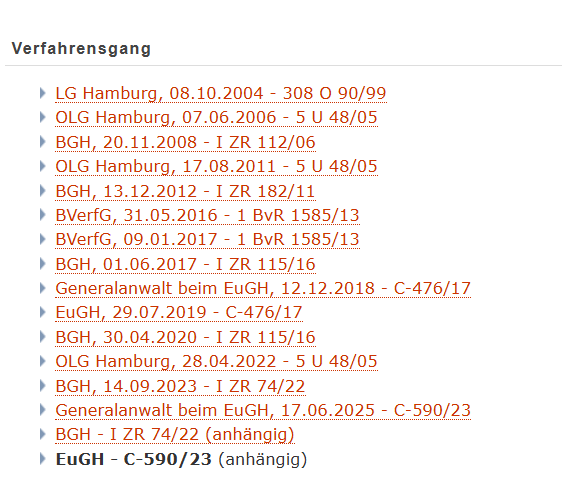
(Isn’t this crazy?)
According to Perplexity, Kraftwerk’s “role in the development of electronic pop music is foundational and incalculable—they created the vocabulary, tools, and vision that the genre and its many offshoots continue to build on today”. I still remember vividly how revolutionary and ear opening Autobahn (released in November 1974 !) was.
Retrospect
Sommerhochschule Strobl
This year's Sommerhochschule ended with, finally, very good weather and an exam that brought me 20 different views on how students' AI use should be regulated.
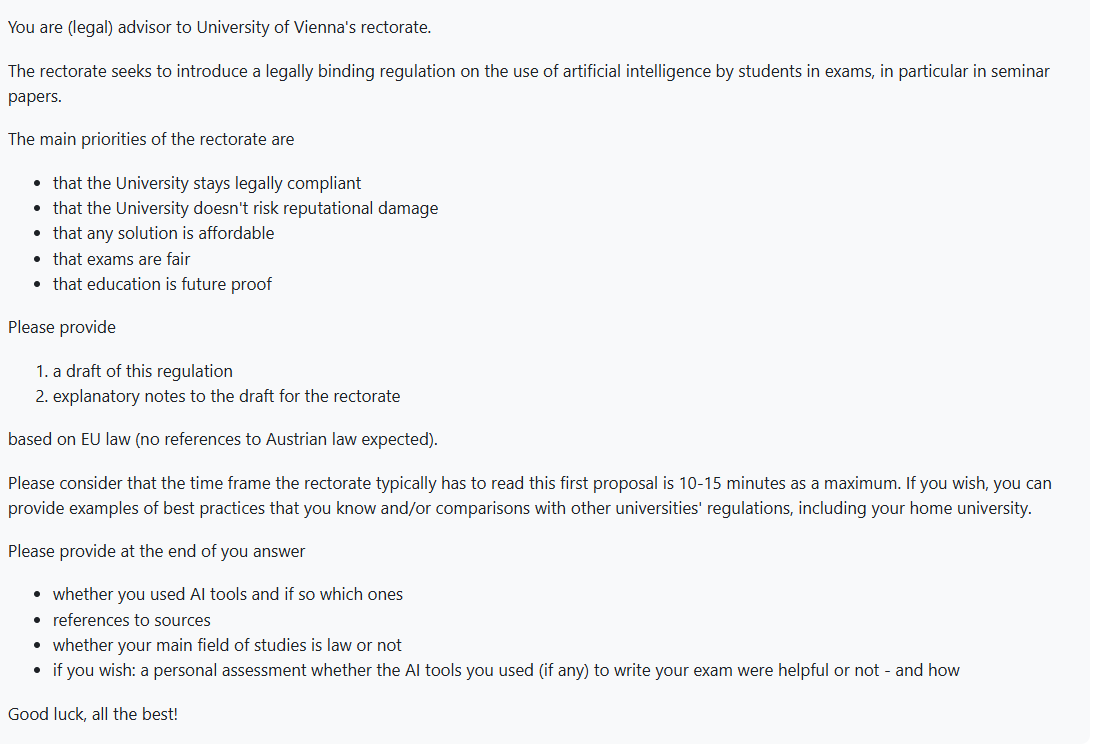
My learnings: Students are very well aware that things are developing quickly - so that many drafts contained a sunset clause or an obligatory assessment after a rather short period of time -, that oversight is a core issue - so that some introduced an AI office(r) or a consultancy body -, and that AI-literacy, including methods, is important - so that many introduced a mandatory course/seminar/exam on use/law/ethics of AI.
I was very impressed, not only about the quality, but also about the variety of answers provided. For some, the learning curve was steep 😄
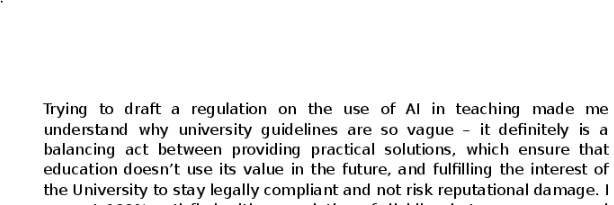
It was also very interesting to see, how cautious/sceptical (already) law students can be.


The event ended with a heartwarming solemn closing ceremony - and then Bürglsaal was empty again - just as if nothing had happened the weeks before.
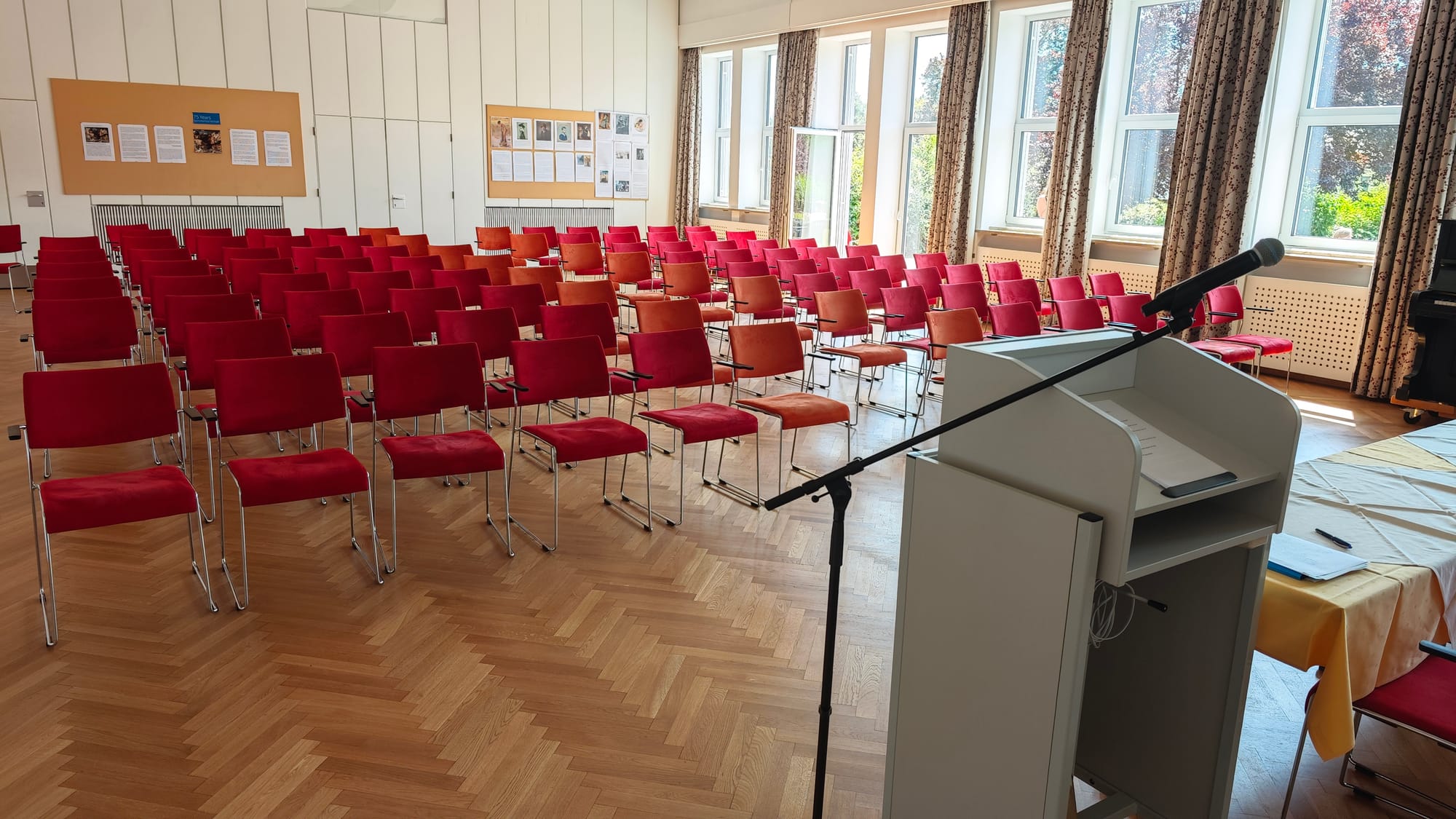
This is probably my favorite picture of this year, taken during one of my morning slowjogs around Bürglstein:
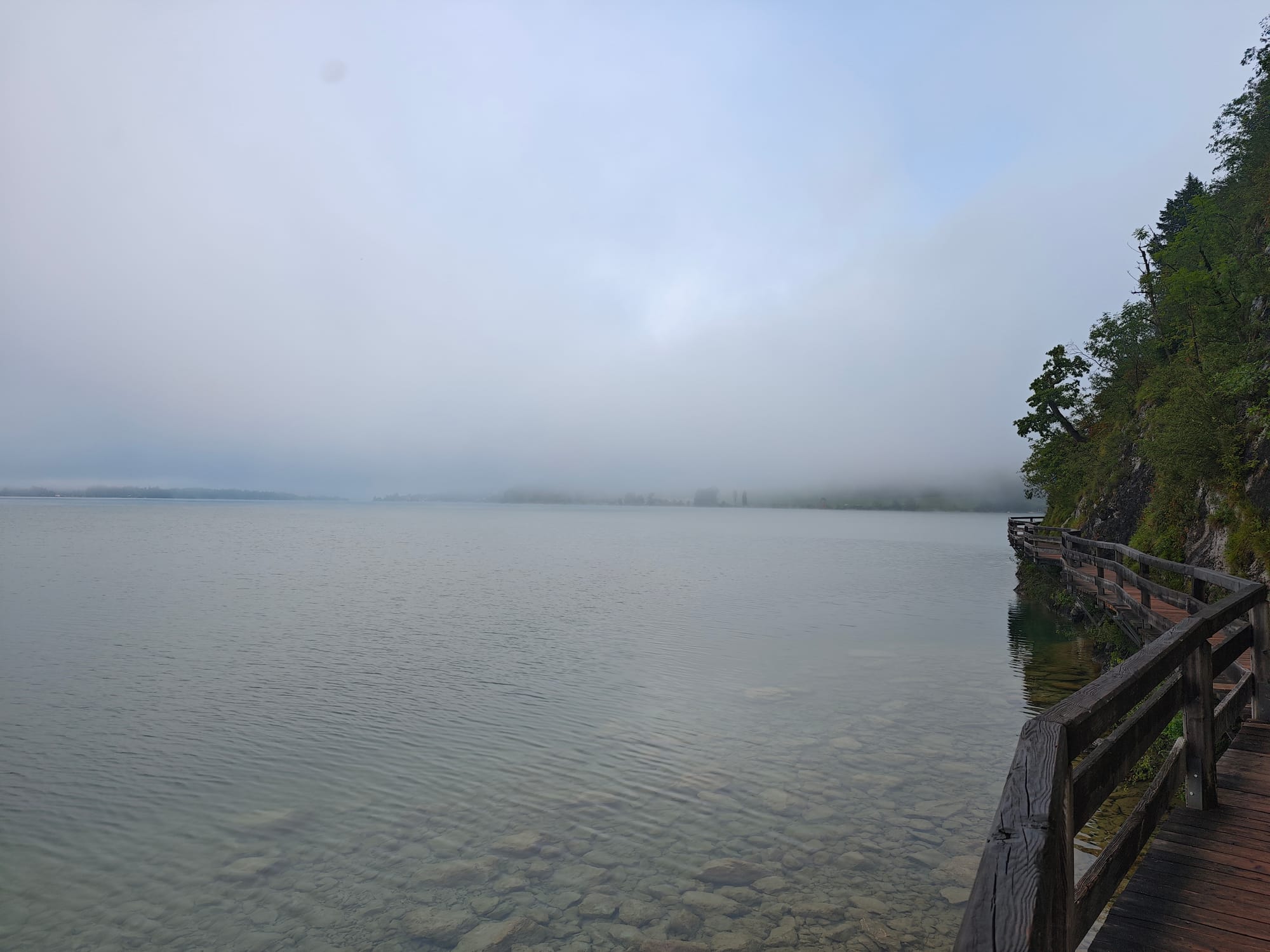
I was also very proud that Prof. DDr. Oliver Rathkolb was so nice to give me an interview on the new 2025 edition of his all time classic "Die paradoxe Republik" (The paradoxical Republic) on one of the last evenings there.

The book is an outstandingly well written and very precise analysis of what Austria is and how it has become what it is.
I enjoyed the conversation a lot - which can hopefully be seen on the video.
Technically, this was, however, challenging - outside, wind, background noise etc. It's still very stressful for me to do content, video and audio on my own - and its's frustrating how many errors with large consequences one can make.
I am not 100 % happy with the outcome's technical quality, in particular with the sound (I used my Rode Wireless Pro here + Adobe Premiere noise cancelling in postproduction that was, probably, too aggressive. It's also astonishing that my sound is much worse than Oliver's, probably due to the slightly different placement of the mic.).
But the view and the light are very nice, although we, possibly, started 20 minutes too late so that the sun was down already and it became slightly too dark (and I am also not sure whether we are really fully in focus).
Here's the setting:
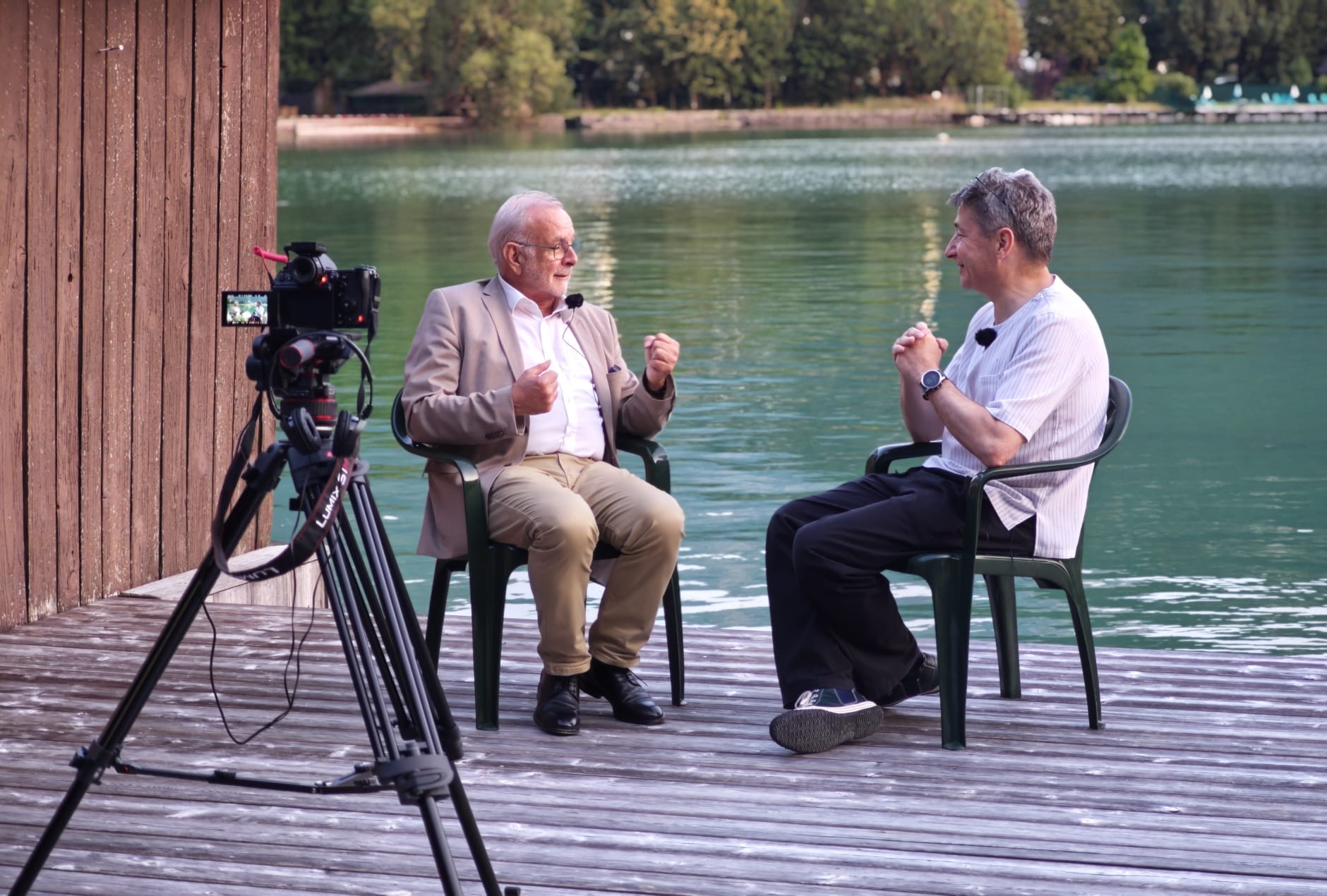
Surveillance
For more than 30 years now, constantly new proposals for new surveillance methods are proposed (often by ministers of the interior) and commercialised (often by US companies). No wonder, therefore, that I was invited also in this week to try again some tilting at windmills in this never ending process.
On Sunday, I managed to sneak the laundry into ZIB II. This was about a new interpretation of § 54 Abs. 6 SPG in an internal executive order ("Erlass") by the minister of the interior, aiming to extend video surveillance at public spaces extensively (more on this here or here).
I was quite intrigued by the interview with ÖVP general secretary Nico Marchetti right after the TV-report with me in it: Marchetti explicitly speaks about a law that is to be changed here, whereas the minister (presumably) means an administrative act only - which is, of course, a very different thing - legally and politically. It's a pity that this discrepancy didn't lead to follow up questions yet (as far as I can tell).
The story didn't end here, on Tuesday lots of stakeholders, including Vienna's mayor, eypressed (again) their opinion that more cameras would be needed; but, frustratingly, still nobody cared about the (rather limited) legal basis for all the statements - an internal regulation of the minister - and that's it. I tried to deliver the point, once again in "Wien Heute" on Tuesday and spoke about the slippery slopes of surveillance there too.
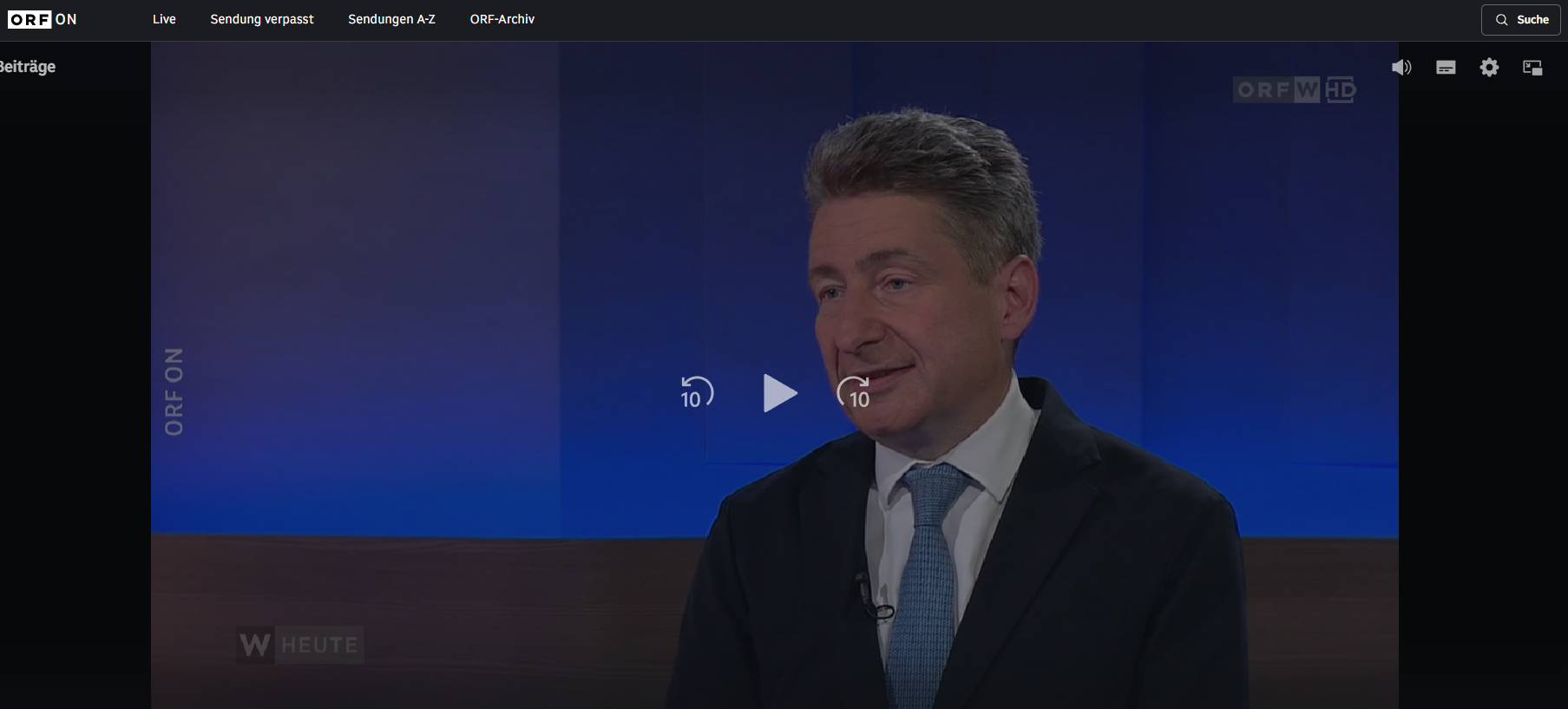
wien.orf.at has a summary. Not surprisingly, epicenter.works issued a very critical press release on the plans, covered, inter alia, by orf.at. Georg Renner gives a very useful and understandable overview on the debate in episode #66 of his Podcast "Ist das wichtig?".
I insisted also in an interview with Salzburger Nachrichten (Paywall) and in OE1 Morgenjournal on Tuesday that it's "unfortunate" to discuss an internal paper - not yet published - just because the minister makes a very broad announcement.
A similar debate is currenly taking place in Baden-Württemberg, with the data protection commissionerm Tobias Keber having a clear opinion - that can be read and discussed by the public.
Another (yet not very different) version of surveillance by public and private authorities was covered on Tuesday evening in ZIB Magazin on Tuesday evening: Palantir . I got interviewed for this (still from Strobl) and profited from having heard
and having seen an interesting documentary "Watching You" on the company and its CEO that is currently available via ARD-Mediathek (BTW: Am I young enough to have a chance to finally see any public TV content to be properly embeddable into any site using any standard editor like this one? ...).
Prospect
I will take a week off.
From Saturday on, Felix and me will go on our yearly bike ride. Reporting on one of these journeys was the start of this blog on Substack in late summer 2023 (rather short then, longer [and earlier in the year] in 2024).
If things go well, we will ride from Salzburg to Trieste. Trieste, again. Again plenty of time to listen to (Italian and Austrian) Music.
and Felix Kramer
will certainly be with me. And lots of podcasts. I wrote about our last jouney from Villach to Trieste in 2022, still on Facebook (Days 1-3, Day 4, Day 5), then. And this was the arrival.
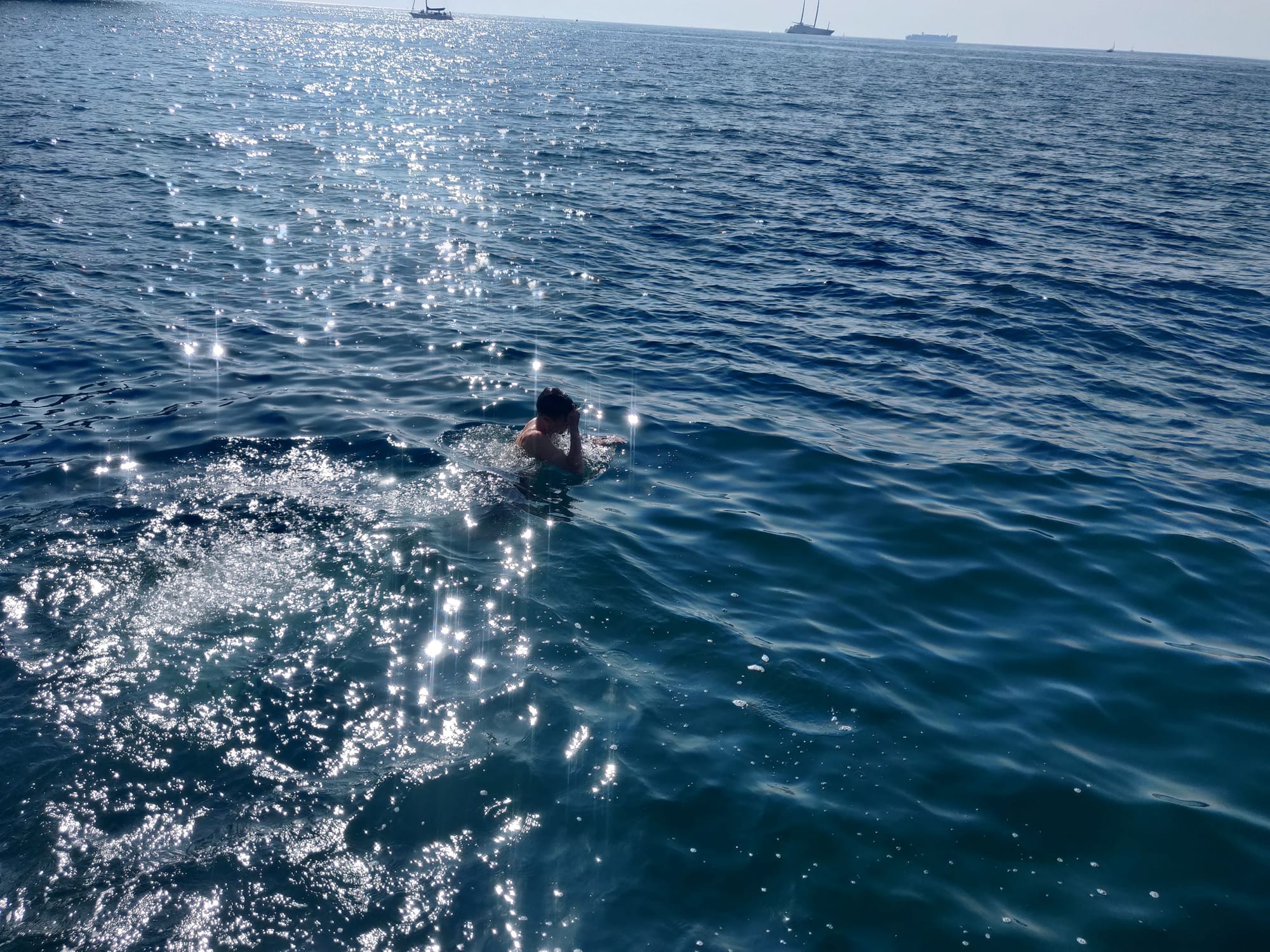
The planning of the trip is dificult, though. It's (still) very burdensome to combine a train with a bike ride when going to/from Italy (in August).
Ars Boni
I recorded a very interesting interview with Dr. Julius Schumann in the laundry. It's about his outstandingly innovative PHD-thesis that was published recently.

Schumann enters new territory with this work, uniquely combining historic, analytical and theoretical approaches. One of my learnings from the talk and the book is how important digitalisation and its relatively advanced status in the Austrian judiciary were for the development of this - very Austria specific - phenomenon.
The video is (hopefully) going to be public on Thursday, 14th, at 6.00 am as well.
https://www.youtube.com/watch?v=oVuz7JS_AnY
Look and Feel
Strobl, Sehnsuchtsorte
Deutschvilla - which was formerly owned by Sommerhochschule and used as professors' residence until the 80ies when, unfortunately, it needed to be sold - and serves now, inter alia, as a showroom - has a nice exhibition on touristic advertisement posters ("Sehnsuchtsorte") until september 25.
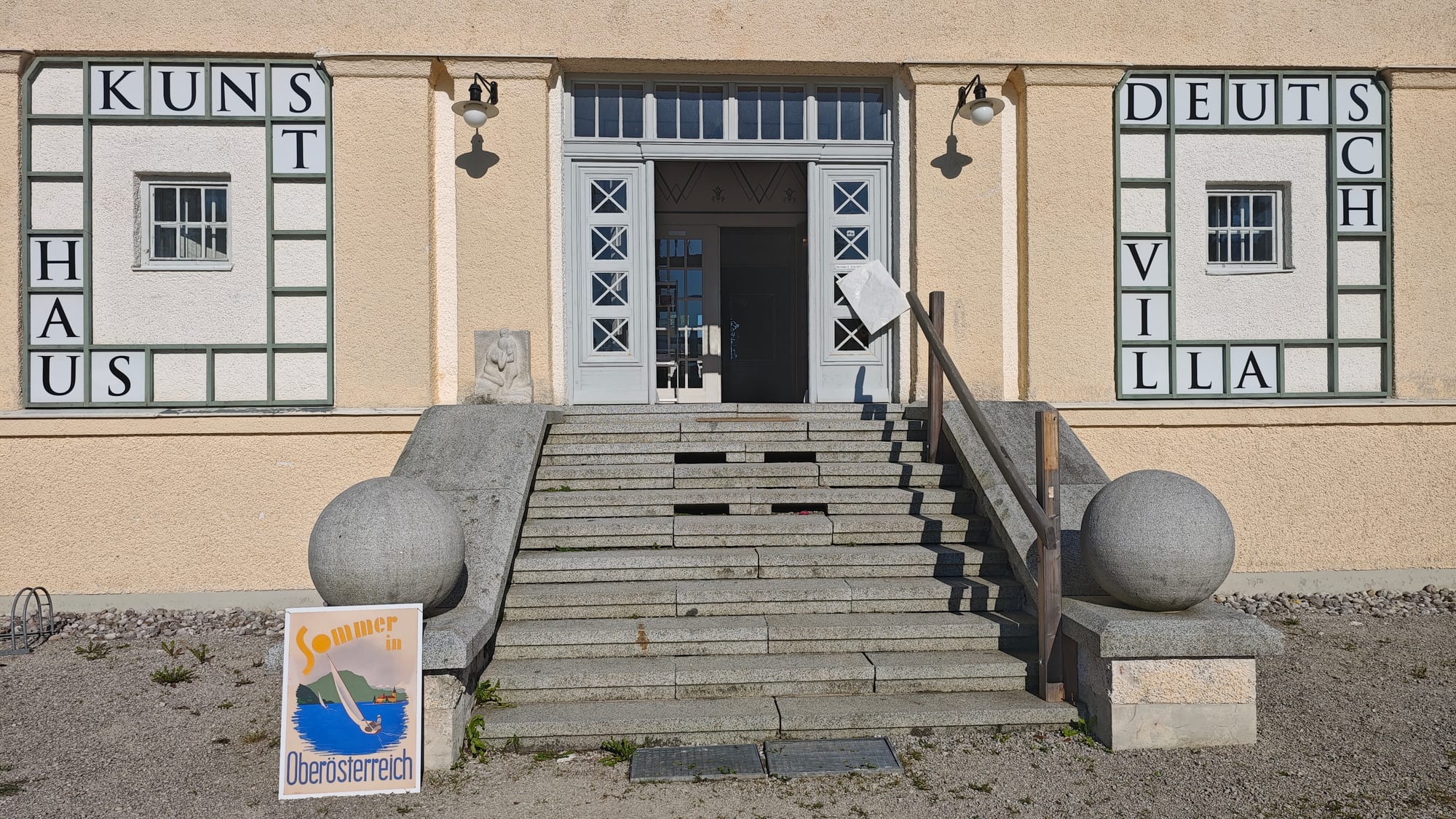
One detail that I learned was that Austria had left-hand traffic until the 1930ies (in some parts at least) and that changing this caused some federalism-chaos.
China
One of the many great things in Strobl was the input given by students from different Asian countries, including China. I was, again, fascinated by differences in substantial IT-law matters such as which data are to be seen sensitive, how AI is regulated and so on.
It's a nice "coincidence" therefore that Spotify suggested me an audibook, written by fellow UNIVIE-professor Susanne Weigelin-Schwiedrzik that I am currently listening to.
Although the book is not so much interested in digital matters, it gives me a lot of new information on geostrategic plans China might have in dealing, for example, with the war in Ukraine. Weigelin-Schwiedrzik emphasizes that China has an interest that this war ends as soon as possible. One of the details really intriguing me is her statement that in her view it's - at least - not unlikely that Covid is the outcome of an accident in the Wuhan virus-laboratory. Wikipedia has a good overview (as far as I can tell) on the different theories on the originis of SARS-Cov-2, the lab escape theory is classified as an "unlikely scenario" ("While other explanations, such as speculations that SARS-CoV-2 was accidentally released from a laboratory have been proposed,[6][7][8] such explanations are not supported by evidence.[9][10].")
The main argument she makes in the book is that Europe is the right player and needs to mediate the conflict around Taiwan.
The Penguin Lessons
Mistelbach, in Lower Austria, around 50km from Vienna, is - like many similar cities - fighting against many issues caused by bad local politics (such as a devastated main square ruined by several shopping centers in the outskirts and a public transport system making it almost impossible not to use a car) and modernisation.
One of these issues is that the local cinema was closed some time ago. Different from other cities, thanks to a local initiative and non profit organisation "film.kunst.kino", Kronenkino is however more alive than ever.
In summer, they run an open air cinema in Nitsch-Museum (another example of how culture politics in Lower Austria tend to fail; see the excellent and prophetic text on this from Matthias Dusini in Falter 2007 [!])) every Tuesday evening that is very nice and - finally - brings people into this often rather dead space.
I saw The Penguin Lessons there which was lovely - both the location and the film.
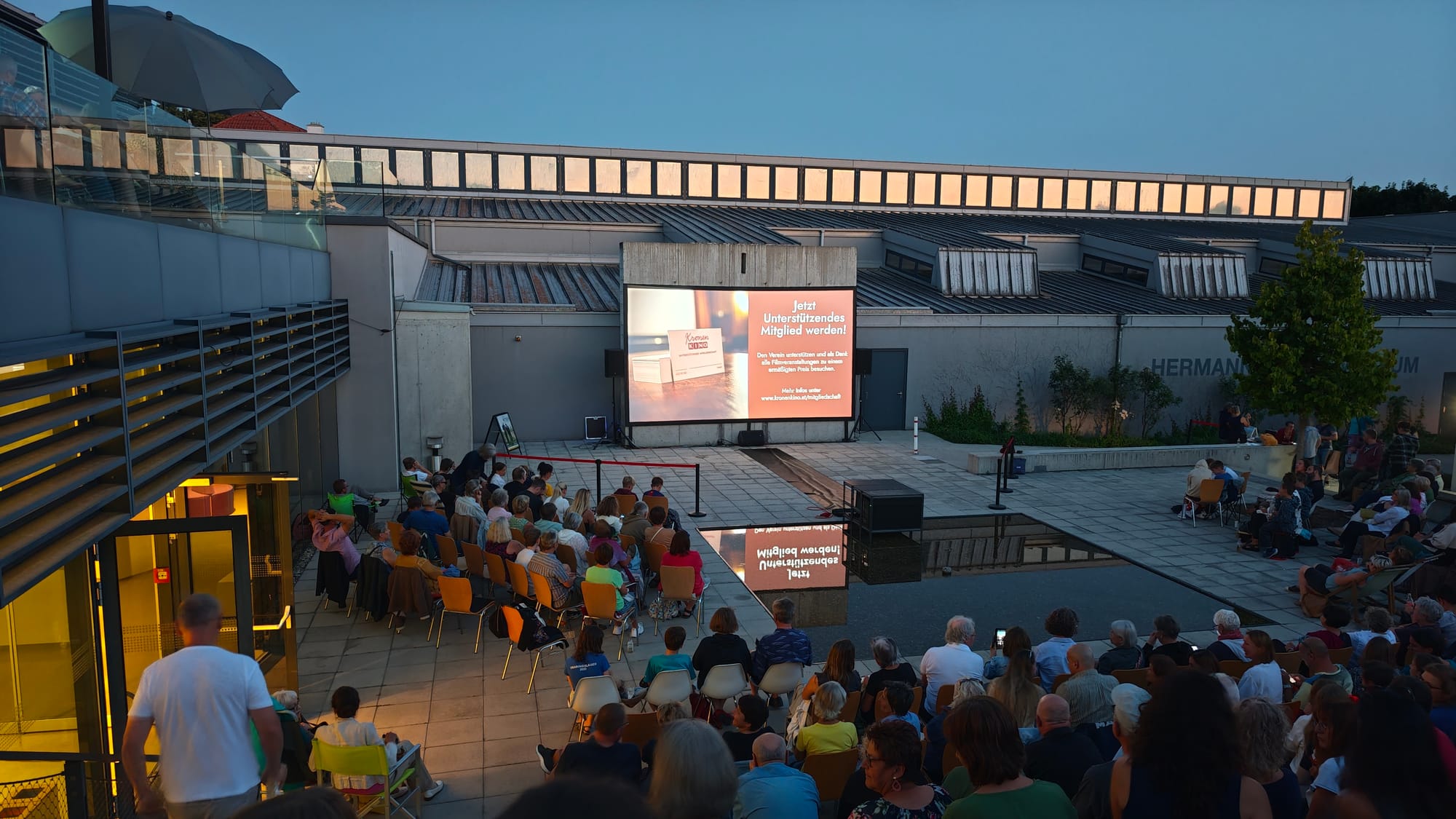
The film taught me about the Argentinan military dictatorship in the 70ies and is currently also screened in Vienna - worth being watched, in my view, here's the trailer
One of the film's nice details is that Nick Drake's beautiful song Northern Sky is part of the soundtrack.
The Sommerkino open air series offers two more films to watch every Tuesday in August. And, in September, Die Strottern & Blech will give a concert in the cinema, which is another reason to go there (Nitsch museum and the cinema are in (20 minutes) walking distance from the train station so that one can get there by public transport too).
AI and Investigative Journalism
FalterRadio has a 30 minutes speech delivered by Christo Buschek on the impact of AI on investigative journalism. Although I don't agree with all the points made, I found this however (or precisely because of this) worth being heard and inspiring.
Daisy
has a perfect Vokuhila with, at least, 15 tones of gold.

Have a wonderful week!
Kind regards
Nikolaus (Forgó)


